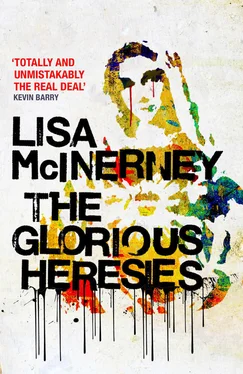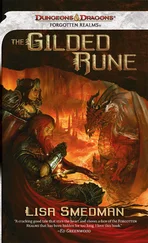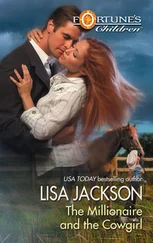‘In prison? What?’
‘Didn’t he tell you he was going away, Tara? Did he not put your name down on the visitor’s scroll so you could go press your tits against the Plexiglas for him every fortnight?’
‘You’re not funny,’ she said.
‘Fucking remember that,’ he replied. ‘I’m not.’
There was a piano recital that evening. Deirdre had phoned him twice to ensure he didn’t forget, and so he showed up in the stuffy auditorium of the old community hall and sat with Deirdre and smiled encouragingly at Ellie as she spread her fingers and plodded over the keys. Ellie looked worse than her exertions sounded. She frowned all the way through the piece and then turned and faced her audience like she’d been instructed to do so by a voice in her head which intended later to encourage her to burn down an orphanage.
And how they clapped, those munificent blenchers, tucked into their bitter rows, thinking about EastEnders or the match or the tubby lovers whose grunts they were missing to cosset the egos of their neighbours’ dumplings. They clapped like their escape depended on the rhythm. Swollen with forged pride, they jostled each other and muttered in empty approval as one bored child after another took to the stage to play out their dues. The smell was intolerable; perspiration, ancient stage curtains, slippery arse cheeks, perfume.
Jimmy Phelan was not at home in such a crowd, but who was? Some of their number looked more comfortable than others — the women, mostly, whose painted smiles hid well their boredom — but they were not happy to be here. There was no camaraderie, no real regard. Jimmy’s parents had enjoyed a sense of community. The city was a smaller place then, and the people’s expectations matched. Now the world had burst its banks and no one had anything in common with anyone anymore.
All day he’d had that anxiety festering again at the back of his skull: that his mother’s streak of madness took him out of the society he’d built, that the lads he turned the clock with would catch wind of his genetic defects and abandon him, betray him, give tribute to a new chief. They were not tied to his character, only to the qualities they found use for.
He would give Tara Duane a chance to quietly find the whore. But he thought he’d have to make it all disappear then: the whore, Duane, and Cusack too, whether or not he wanted to.
When she was small, they said she liked to toy with things. That she enjoyed making babies of dogs, people of woodlice, pets of dying birds. That things existed for her amusement, whether they were lacquered wood or flesh around a beating heart.
Maureen Phelan’s mother had been brainwashed beautifully. There had never been a question of her choosing her gender over her church; she pandered to the vestments as if by debasing herself she could avoid the stain of her sex. Her own daughters she saw as treacherous vixens. Puberty marked their descent. She hated the hair under their arms, their sloping waists, the blood that confirmed they were ready for sin. She was a vicious and stupid woman. Some combination. Her name was Una.
Una’s parents lived just up the hill from the Industrial School and Laundry, where, she told her daughters, all the bad girls went. She seemed both deathly afraid of the place and satisfied it was there at all, in the same way she was full sure of hell and content that it wasn’t for the likes of her. She announced that the Laundry’s inmates would therein learn the humility they were sorely lacking. Every girl with a fashionable hemline, every girl who had notions about herself, was fit for nowhere but behind the high walls . Boys she had less of a problem with; they were dumb creatures whose animal whims were to be carefully managed.
Maureen was the middle child of seven; despite her efforts, Una’s management of her husband’s impulses hadn’t followed her austere ideal.
Una Phelan was a frightened hag, comfortable in a dying Ireland and snapping feverishly at its future. For her there was no authority but the Holy Trinity: the priests, the nuns and the neighbours. Hers was the first generation of the new Republic, the crowd hand-reared on Dev and Archbishop McQuaid, the genuflectors.
When Maureen figured out that not only was she pregnant, but pregnant and abandoned by a coward, it was both horrifying and vaguely freeing, like hitting bedrock. She considered her options: the stairs, the coat hanger, the boiling baths. It didn’t take her long to reject them. There was something to be said for fulfilling the destiny her mother had kept harping on about.
So she flounced into the kitchen and announced her misdeed with the bravado of scientific detachment. She watched the colour drain from her parents’ cheeks, and the emotions that betrayed their humanity cross their faces like clouds on an October sky. She was nineteen but they were still the authority; she prepared for their punishment with frosty curiosity. One thing she knew: she wasn’t doing her penance up to her elbows in soap and steam in the Laundry. She would have killed them both first.
She had brought the devil into the family home and so all hell broke loose. Behind the high walls seemed her mother’s preferred choice, but in the 1970s the tide was turning. Giving up a daughter to appease sour-faced nuns no longer seemed the only thing to do, and the third leaf of Una’s Holy Trinity was beginning to wilt and fall. A second cousin was found in Dublin willing to take in the slattern.
James Dominic Phelan was born in Holles Street and clutched to his mother’s breast ‘like a doll’, according to the scowling grandmother, while the grown-ups debated what to do with him. In the end they decided the shame of raising him themselves was the lesser shame. He was taken from Maureen, whose childish wont would otherwise have been to make a plaything of him, and this was no time for games. He was installed as the baby, twelve years younger than his youngest uncle, and Maureen was sent to a hastily procured position in a London office.
She started three weeks after giving birth.
‘No toys there,’ Una announced, triumphantly. She was wrong. There were plenty of things to toy with in London, but the joy had been taken right out of it.
Ten minutes walk from her front door and she was at the entrance to the old Laundry. If there was someone at the gate lodge, or the newer building near the entrance, they didn’t bother her. She walked up the path. Overgrown now, the city reclaiming its darker monuments.
There were cracked stone steps leading up to the building, but the building itself was only a shell, the red brick, the arches, the iron crosses on its towers, all stained and falling down. She walked a little way along the front of the place, and spotted the space behind the facade; it had been gutted.
Statues everywhere. Some of them defaced. Here was a shepherd with a twirling black moustache, a lichened maiden with an alien name daubed on her robes. They stood in silent guard, oblivious to the unchecked march of the branches, grasses and fronds. Oblivious to Maureen. Relics of the past, swallowed by a world expanding.
Christ, it was silent. Maureen stood, her back to the barren brick, and looked out towards the river.
There were plenty of other Irish exiles in London back in the 1970s. Maureen had met her share; they rushed together like streams of the same mercurial poison. She’d known a number of women who’d spent their girlhoods in places like this, two who had been right here. Both had had baby boys. One of them had reared hers until he was twenty-one months old. The nuns had come in one day and informed her that he was being adopted, and that was it; she said her goodbyes and never saw him again. The other had only had five months with hers before he was taken away at an hour’s notice; she had sat on her cot, she told Maureen, her breasts still heavy with milk, clawing at her face, rocking, sure now that this was the end, that she’d never be out of the place. There was talk of surrendering her to the asylum, but the action was abandoned when she came to her senses and her elbow grease became profitable again. Born only around the corner, Una Phelan was damn glad of the nuns’ service.
Читать дальше












